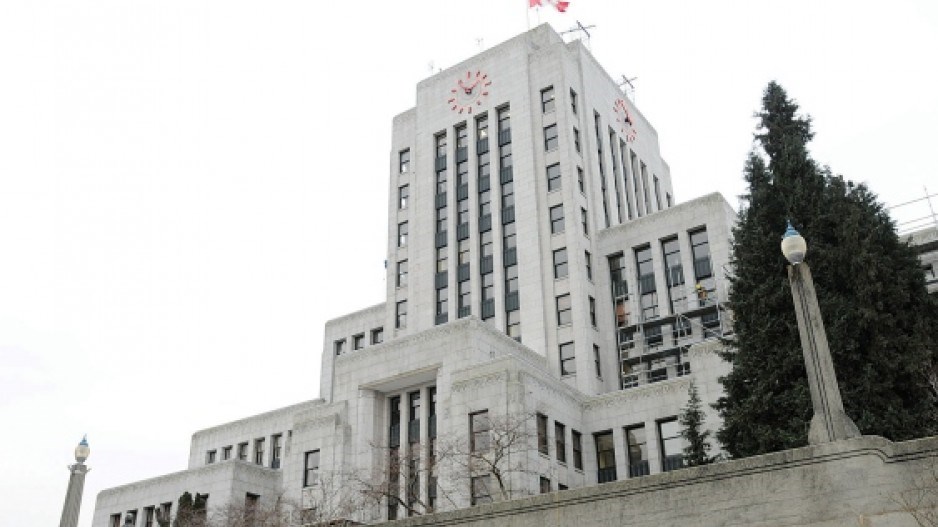Vancouver Mayor Ken Sim’s written list of goals for his time in office doesn’t exist on paper, according to city hall.
In an interview for a feature about his first 100 days in office that aired Feb. 27, Sim told CTV 撸奶社区 Vancouver that he was already planning an exit strategy from 12th and Cambie.
“There are five things that I've written on a list that are private, and as soon as we accomplish those five things, it will be my time to make room for the next individual,” said Sim, leader of the ABC Vancouver supermajority on city council.
When a politician makes a list about his public duties, even if he considers it to be private, the public has a right to ask to see a copy.
However, a reporter came up empty after an application to city hall under the freedom of information law for a copy of the list that Sim said he wrote.
“No responsive records have been located,” replied city hall’s access to information and privacy director Cobi Falconer on Tuesday.
“The mayor’s office has confirmed that the list referenced in the CTV interview is not a physical document, and the mayor’s use of the words ‘five things written on a list’ was a figure of speech.”
Sim became the 41st mayor of Vancouver in last October’s election. He garnered 36,139 more votes than incumbent Kennedy Stewart.
A transparency watchdog called it reasonable for a journalist to dig deeper in order to determine whether a politician’s priorities are different from the promises in the campaign platform that got him elected.
Jason Woywada, executive director of the B.C. Freedom of Information and Privacy Association, said when a politician says one thing and means another, the harm goes beyond the politician to the institution of government.
“It further reinforces that politicians can't be trusted, and I hope to trust politicians,” Woywada said. “I want to trust politicians, I want to trust that their actions are going to be reflective of what they're saying they're going to do.”
In Sim’s case, he told a reporter that he had recorded information related to his duties in the form of a list.
“What is his agenda and how does what he's working on differ from his platform? Those are legitimate questions,” Woywada said. “It's one of those scenarios where politicians sometimes get caught in these types of dynamics where they say one thing, and they are counting on either no one following up or they are counting on a short-term memory on the part of the person that's hearing.”



